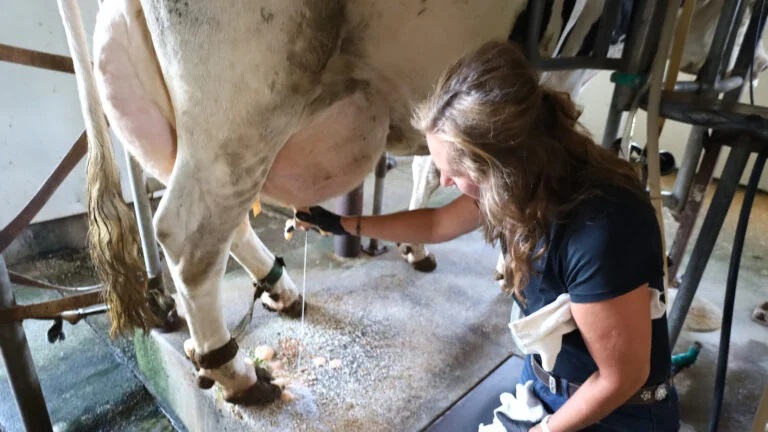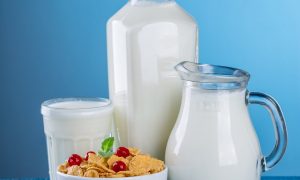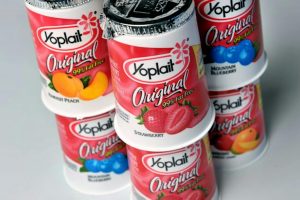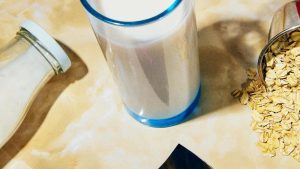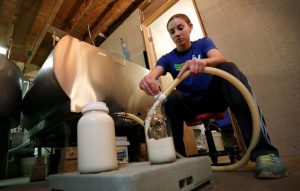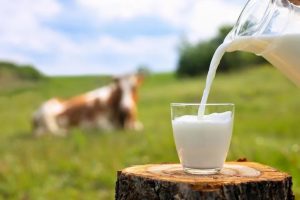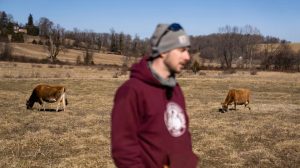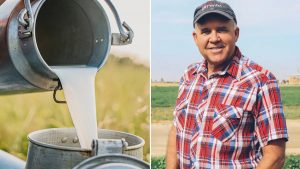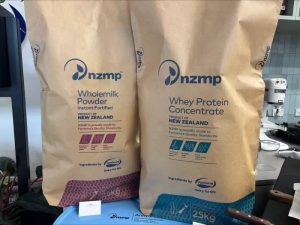
Delaware may soon allow people to buy raw milk, but health officials say the practice has serious risks.
Stephanie Knutsen and her husband have sold pasteurized milk in southern Delaware for over 20 years. They have 50 cows that produce 400 gallons of milk a day. But Knutsen said it’s a struggle making ends meet.
“We wouldn’t want to live any other way, but it certainly isn’t for the faint of heart either,” she said. “We’re just not really seeing a future for our kids in the dairy industry.”
Many dairy farmers also saw no future over the past two decades. Knutsen said that when her family started in Delaware’s dairy industry, there were around 100 other farms in the state. Now there are 13.
Delaware is the latest state to legalize the retail sale of raw milk and raw milk products, with Gov. John Carney recently signing the bill lawmakers passed earlier this year. Dairy farmers like Knutsen hope the new law will help struggling family farms survive despite federal officials increasingly warning about the lucrative market’s serious health risks.
While most people drink pasteurized milk, government surveys have estimated that more than 4% of Americans have tried raw milk at least once in the past 12 months.
Knutsen says they earn an average of $1.45 per gallon for pasteurized milk. While there is no set national price for raw milk, a Google search shows that a gallon of raw milk can fetch between $5 and $20 on average.
That could bring tens of millions more dollars to local farmers compared to pasteurized sales.
“It absolutely has the ability to save the Delaware dairy industry for those who want to get involved in it,” Knutsen said.
According to the Delaware Department of Agriculture, 34 states allow some form of the sale of raw milk. Some allow sales for human consumption, while others, like New Jersey, limit it to pets. Pennsylvania currently allows those with a permit to sell raw milk and cheese for human use, and a bill introduced in the Pennsylvania General Assembly would expand that to include items such as yogurt or ice cream.
Raw milk is not pasteurized, so it’s not heated to kill bacteria, viruses or parasites that can cause serious illnesses. Enthusiasts say it’s creamier, unprocessed and more natural. Delaware Agriculture Secretary Michael Scuse, who advocated for the law, said he was raised on raw milk until he was 11 years old.
“There’s a big difference between the taste and flavor and the consistency of raw milk versus pasteurized milk,” he said. “There are those out there that believe that it is actually healthier for you.”
Delaware’s action to legalize retail sales of raw milk comes as the Food and Drug Administration urged states to stop its sale amid an outbreak of bird flu among dairy cattle. There have been no cases of human transmission.
Alex O’Brien is with the Center for Dairy Research in Madison, Wisconsin. He tracks outbreaks of disease due to consumption of raw milk products and says the consequences can be severe. He highlighted outbreaks over several years connected to a California raw milk producer that sickened people with illnesses including salmonella, E. coli and listeria.
“You can have litigation. People die from drinking raw milk,” he said. “Kids have died and they can get really ill.”
O’Brien said some products, such as raw milk cheese, can be safer than drinking raw milk because there’s some heating involved. Some people use more acidic starter cultures, which decreases pathogens, and the presence of salt lowers the ability of bacteria to grow.
Knutsen said she’s done her research and that raw milk has been getting a raw deal. But she said she’s looked at the issue to make sure she felt comfortable that her farm wasn’t going to put someone’s health in jeopardy or make her farm the target of a lawsuit.
“I’m never going to sit here and tell somebody that this is just as safe as pasteurized milk,” she said. “It’s not, it’s riskier. ‘Is it high risk?’ No, it’s not. ‘Are there benefits?’ I think yes.”
She said people have the right to choose what they want or don’t want to consume, including her family, who drink raw milk regularly.
“This has brought hope to our farm,” she said. “We can actually see a future for our children, potentially selling raw milk and as a viable way to keep cows on the farm.”
Delaware still has to write the regulations for how the law will work. Agriculture Secretary Scuse says the state will work with public health officials and require farms to do monthly testing.
You can now read the most important #news on #eDairyNews #Whatsapp channels!!!
🇺🇸 eDairy News INGLÊS: https://whatsapp.com/channel/0029VaKsjzGDTkJyIN6hcP1K
